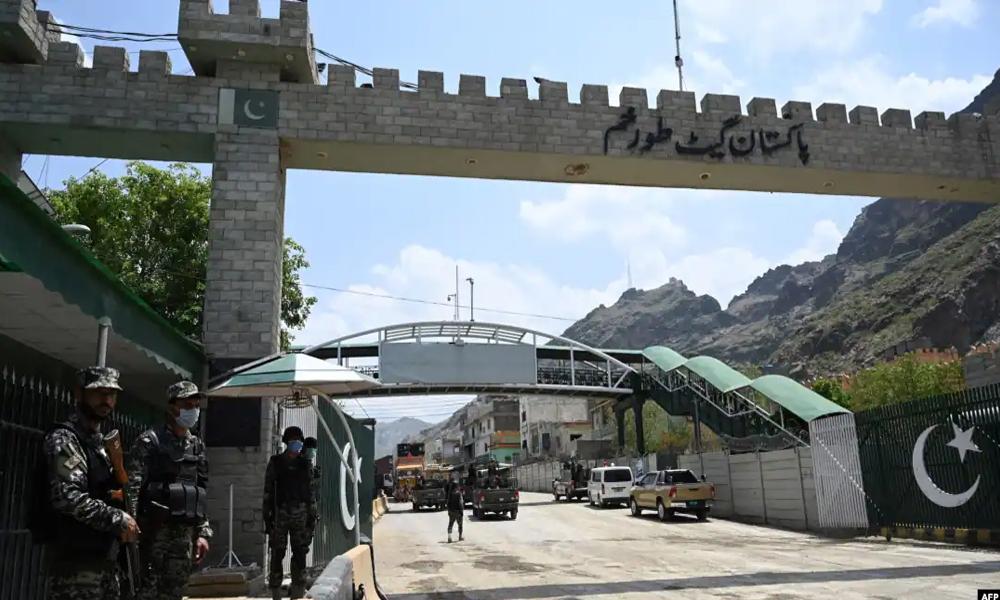Pakistan is supporting the policy of talks with IAG government to resolve all matters amicably


Pro-Taliban elements on X do not realize how badly they are dependent on Pakistan. Their tribal jingoism would not hold a ground if Pakistan chose to apply pressure.
Narrative
Economic Pressure
Afghanistan is heavily dependent on Pakistan for trade, supply routes, and humanitarian aid.
The vast majority of goods entering Afghanistan ranging from food supplies to fuel, pass through Pakistan’s borders. In times of tension or conflict, Pakistan can easily disrupt these supply lines, causing severe economic consequences.
Humanitarian aid, including medical supplies and foreign assistance, is also routed through Pakistan, making Afghanistan highly vulnerable to any economic sanctions or trade blockages imposed by Pakistan. Any significant disruption in these channels forces Afghanistan into a dire economic and humanitarian crisis, showcasing its dependence on Pakistan.
Diplomatic Isolation
The Taliban’s rule in Afghanistan has led to diplomatic isolation on the international stage. Many countries, particularly in the West, have refused to recognize the Taliban government due to its hardline policies, human rights violations, and strict interpretation of tribal laws disguised as religious edicts.
Pakistan, despite international condemnation of the Taliban's governance, continues to engage diplomatically with Afghanistan, offering a lifeline of recognition and semblance of international legitimacy.
Military Potential
Pakistan’s military has the capability to target Taliban factions, insurgent groups, and other militant forces operating deep inside Afghanistan.
While Pakistan has refrained from direct military action against Afghanistan, it retains the option to launch precision strikes against any group deep inside Afghan territory that threatens its national security or interests, particularly those associated with anti-Pakistan terrorism.
Refugee Policies
For decades, Pakistan has hosted millions of Afghan refugees, providing them with shelter, healthcare, and education, despite the enormous financial and social strain this has placed on Pakistan.
While some other countries have either closed their borders or imposed harsh restrictions on Afghan refugees, Pakistan has not yet forced a mass repatriation of refugees, which could trigger a new wave of instability in Afghanistan.
By allowing Afghan refugees to remain within its borders, Pakistan is giving Afghanistan a buffer against an immediate humanitarian disaster.
Intelligence Operations
Resistance groups like the National Resistance Front (NRF) and other anti-Taliban factions are actively supporting Pakistan stance, and are challenging the Taliban’s control over Afghanistan.
Pakistan has extensive intelligence networks both inside Afghanistan and within the Afghan diaspora, which it can leverage to support these resistance movements. These groups are eager for Pakistani assistance in their fight against the Taliban, seeing Islamabad as a critical player in their struggle for political relevance and autonomy.
However, Pakistan is supporting the policy of talks with IAG government to resolve all matters amicably.

What are gold rates in Pakistan, global markets today?
- 2 hours ago

Punjab aircraft controversy should be viewed through facts and policy lens: Analysts
- a day ago

Pakistan targets 7 TTP, ISKP hideouts in border operation
- a day ago

Pakistan, Bangladesh to expand cooperation across diverse sectors
- a day ago

President, PM urge Scouts to assist Govt in dealing with challenges
- a day ago

The Supreme Court just blew up Trump’s foreign policy
- a day ago
Iran says any US attack including limited strikes would be ‘act of aggression’
- 2 hours ago

The AI security nightmare is here and it looks suspiciously like lobster
- a day ago
Three Federal Constabulary personnel martyred in terrorist attack in KP’s Karak
- 2 hours ago

Super eight: spinners’ magic works as England beat Sri Lanka by 51 runs
- a day ago
Security forces neutralise four Indian-sponsored terrorists in Pishin IBO: ISPR
- 2 hours ago
T20 World Cup: Pakistan warn England’s flaky batting to expect a trial by spin
- 2 hours ago



